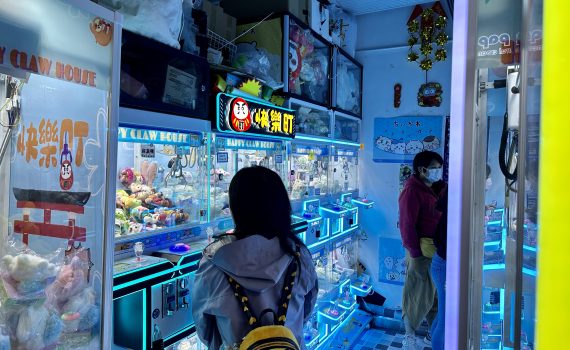#tyr

A drive through the newly opened Wan Chai Bypass and Island Eastern Corridor
- 2019-01-21
- Society
- The Young Reporter
- By: Anna KamEdited by: Rachel Yeo
- 2019-01-21
The Wan Chai Bypass and Island Eastern Corridor opens today, costing $36 billion dollars to build. The project began in December 2009 and aims to reduce traffic from the eastern corridor towards the city’s central area, which has previously been a problematic area for traffic during rush hour. This is caused by drivers and passengers going back to the Kowloon side via the Cross Harbour Tunnel and surge of traffic going towards the Sai Ying Pun area from Causeway Bay. Passengers that go by the route from the eastern corridor to the west side often have a 30 to 45 minute wait between 5:00PM to 7:30PM. Roads have now been changed in order to accommodate the brand new tunnel. One of our reporters drove through the tunnel this afternoon, taking about 5 minutes to drive through the entire 4.5km tunnel, with generally smooth traffic. However, the final "test" that should occur would be during the rush hours in the morning and evening. During the drive, there were no clear instructions indicated on switching lanes within the tunnel was not allowed, giving the Wan Chai North (going to the Wan Chai Convention Center) only one lane, but three lands while heading out to the western side of the island. Despite the three lanes leading up to the western side, there was also no clear route that connects the Western Crossing harbour Tunnel since the exit is currently closed. One of the main aims of the tunnel was to divert the traffic from the Cross Harbour Tunnel to the Western Crossing Tunnel and the Eastern Harbour Crossing. However, the unclear instructions and unopened roads made it very difficult to get to the Western Harbour Crossing. Overall, the experience of driving through the tunnel was smooth, despite some minor changes in the directions and some exits of the tunnel remaining closed.

Hip-hop geeks leap forward with local rap battles
- 2017-10-26
- Culture & Leisure
- The Young Reporter
- By: Daisy Lee、Jianne SorianoEdited by: Daisy Lee、Jianne Soriano
- 2017-10-26
At eleven o'clock on Saturday night, when it's past bedtime for the city, the nightlife hub in Hong Kong's Lan Kwai Fong just kicked off its day. Standing at the entrance of an underground club, Hector "SCF-SAiNT" Telmo, in a plain black t-shirt with the words "Straight Outta Home Kong" was busily distributing leaflets for his hip-hop show held later night. Unlike others, he's looking for the chance to break the deadlock of hip-hop on the 'cultural desert' by organising regular rap battles in Central hipster clubs. Straight Outta Home Kong is a underground music project co-founded by two non-Chinese rappers, Telmo and Mohit "DJ Mojito" Kailandasani. Telmo has been stuck for a while in developing his career as a rapper. "Nobody opened the doors for us, nobody gave us opportunities. We felt like outcasts, so our mission was 'how do we bridge the gap, how do we connect, how we get to work with them,'" he said. Though the road to success is not as simple as he expected, the 25-year-old didn't stop. Instead, he started searching for way-out for his fellows—to connect Cantonese, English and Tagalog rappers, who were also looking for a place in the hip-hop industry for a long time. "Now that there's a platform, an opportunity and the fact that the younger generation can see this...at least they have something to look up to, especially on the ethnic minority side," he added. Invited by Telmo, Eric "Heartgrey" So, a Hong Kong beatboxer who debuted about 10 years ago, sees hip-hop battles held in bars as a chance 'to show [their] passion and energy to the local people'. "It's already hard to do music in Hong Kong so if there's a platform...why don't you perform and participate?" Describing the times when he was still starting as …








